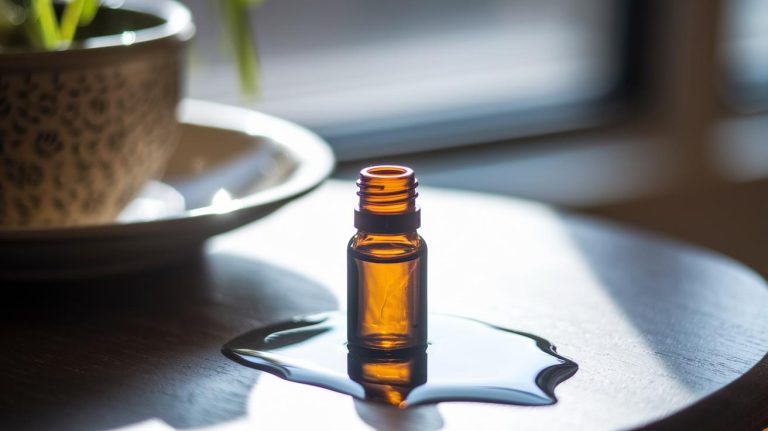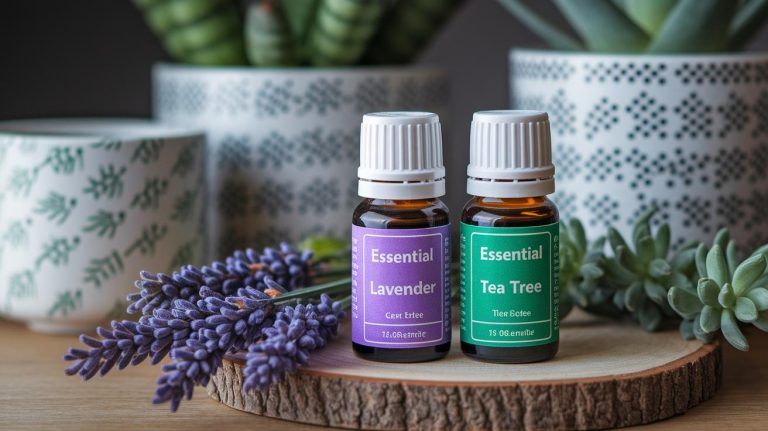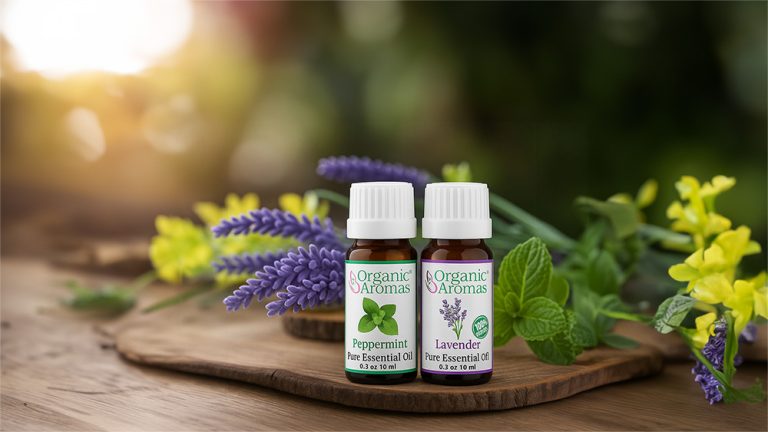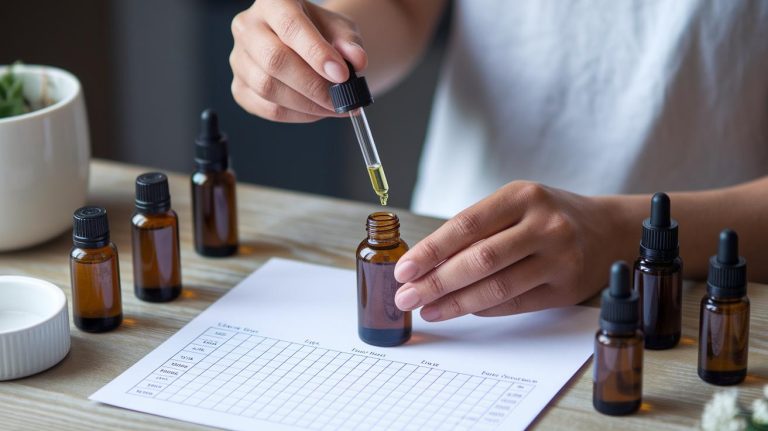Top 7 Pregnancy Essential Oils for Relaxation and Calm
Have you ever paused to think if that cozy lavender-vanilla blend is too intense for your newborn?
Essential oils are tiny powerhouses made from plants – they’re super concentrated.
Wait, let me rephrase that. Imagine a river of scent in every drop, you know.
That’s why when it comes to pregnancy essential oils or anything used around babies, it’s all about being gentle. Whether you’re looking for a moment of relaxation, a bit of calm, or just a soothing bedtime routine, Organic Aromas recommends a soft 1% dilution – that’s one drop of essential oil to 99 drops of carrier oil – especially when massaging delicate skin.
Using Pregnancy Essential Oils during pregnancy can enhance your well-being and support relaxation.
The first trimester (the first three months when your baby’s organs are forming) is the most sensitive time. Some experts even suggest holding off on aromatherapy (using scent to ease stress) until you hit week twelve. That extra care means extra peace of mind.
Embracing Pregnancy Essential Oils can create a nurturing environment for both mother and baby.
In truth, you deserve calming scents without the worry. So here’s a simple guide:
- Dilute to 1%: one drop of essential oil plus 99 drops of carrier oil.
- Inhale mindfully: breathe in the pure aroma for up to 10 minutes.
- Skip high-camphor oils like wintergreen and rosemary until week twelve.
Enjoy moments of calm. Breathe. Relax.
Core Guidelines for Pregnancy Essential Oils

Consider the impact of Pregnancy Essential Oils on your overall mood and health.
Before using any Pregnancy Essential Oils, always consult with your healthcare provider for safety.
Essential oils come from plants and they’re super strong. We always dilute them so they’re gentle for you and your baby. For skin use, keep blends at 1% (that’s one drop of oil per 5 ml of carrier). You can see how many drops fit in different bottle sizes at How Many Drops of Essential Oil in 1 Oz.
Always do a patch test, um, on a small spot before you massage more.
The first trimester (up to 12 weeks) is the most sensitive time for your baby. Many experts recommend avoiding essential oils then. After 12 weeks, you can bring them back gently. But follow these safety steps for pregnancy aromatherapy.
Here’s how to use oils from safest to least safe:
- Inhalation: Use a nebulizing diffuser (how a fine mist delivers undiluted essential oils). Add 10–15 drops and breathe in the soft aroma for 30–60 minutes.
- Topical: Apply a 1% blend in a light massage or roller.
- Internal: Oral, rectal, or vaginal use is not recommended during pregnancy.
Carriers help make the scent smooth and skin-friendly. Try coconut, olive, or avocado oil. Hydrosols or plain water are gentle options, too. Learn more at Best Carrier Oil for Essential Oils.
Watch out for phototoxic oils like expressed citrus, especially grapefruit and lime. These can make your skin extra sensitive to sun. After you apply them, avoid direct sunlight for 24 hours.
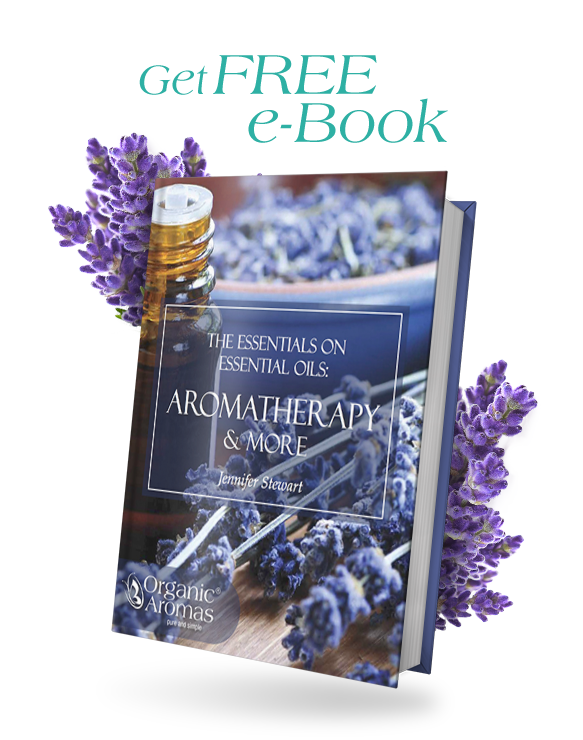
Sign Up to Get Your FREE
e-Book Here…
Inhalation of Pregnancy Essential Oils can provide quick relief during stressful moments.
Here’s a quick look at the safest oils and the ones to skip:
| Top 5 Safe Oils | Top 5 to Avoid |
|---|---|
| Lavender | Clary Sage |
| Sweet Orange | Cinnamon |
| Chamomile | Oregano |
| Rose Geranium | Pennyroyal |
| Mandarin | Basil CT estragol |
Trimester-Specific Essential Oil Safety During Pregnancy

Document your experiences with Pregnancy Essential Oils to track what works for you.
Have you felt how a soft mist of pregnancy essential oils can soothe your senses? Pregnancy calls for extra care as your body grows and changes. Here’s a simple guide to keep each trimester safe and aromatic.
While using Pregnancy Essential Oils, make sure to follow recommended dilutions.
Understanding the right application of Pregnancy Essential Oils is key to safety.
First Trimester
Start with a 1% dilution (six drops of oil per ounce of carrier oil) to keep the mist gentle. Inhale from a diffuser or a cotton ball, no skin contact.Second Trimester
The same 1% dilution still applies. You can enjoy a splash of citrus or chamomile in the mist. Breathe in. Relax.Third Trimester
Keep the 1% dilution steady. Avoid uterine-stimulant oils (oils that encourage contractions), like clary sage or cinnamon bark. Let your aroma ritual stay calm and soothing.- Don’t forget to check in with your healthcare provider before trying new oils. Safety first, so you can savor every gentle breath.
Pregnancy Essential Oils Safety and Recommended Uses
Make sure to learn about specific Pregnancy Essential Oils suitable for your stage of pregnancy.
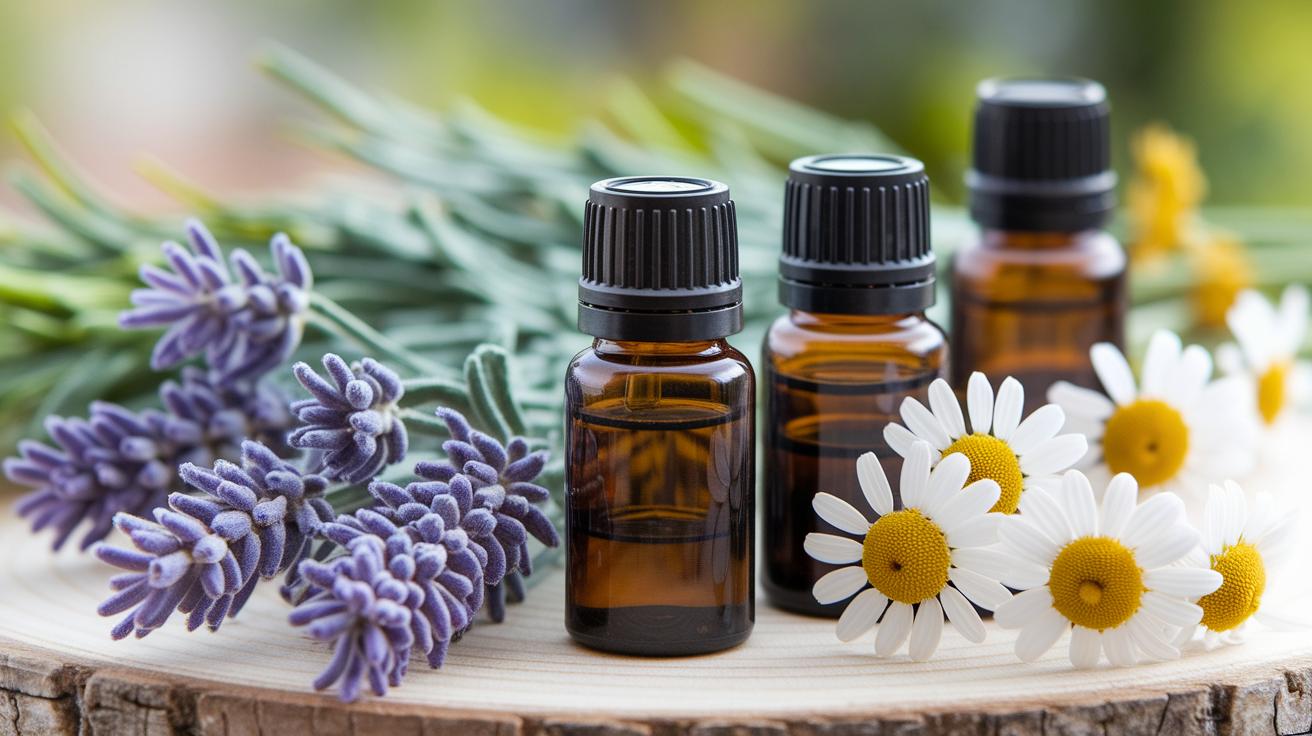
After your first trimester, you might welcome gentle plant aromas with a simple 1% dilution. That’s one drop of essential oil per teaspoon (5 ml) of carrier oil. These soft scents can help ease nausea, soothe headaches, lift fatigue and support skin elasticity. Have you noticed how a single breath of lavender can calm your mind?
- Bergamot FCF (furocoumarin free): brightens mood without sun-sensitivity
- Black Pepper: warms tired muscles and eases tension
- German Chamomile: calms nerves and soothes sensitive skin
- Roman Chamomile: invites rest and gentle anti-inflammatory care
- Cypress: encourages circulation in swollen legs
- Rose Geranium: balances skin tone and uplifts mood
- Ginger: settles queasy waves
- Helichrysum: supports skin healing and reduces marks
- Juniper: gently detoxes and eases puffiness
- Lavender: eases headaches and quiets busy thoughts
- Mandarin: refreshes and lightens spirits
- Petitgrain: promotes restful sleep
- Pine: clears mental fog
- Rose: offers a soft, nurturing aroma
- Sweet Orange: brightens energy and mood
It’s essential to know which Pregnancy Essential Oils are safe and beneficial during each trimester.
Chamomile Essential Oil 100% Pure
Origin: United Kingdom
Extraction Method: Steam Distillation
Plant Part: Flowers
Read More Chamomile Essential Oil 100% Pure
Topical Applications
Before using any new Pregnancy Essential Oils, check their compatibility with pregnancy.
Keep blends at 1%, one drop of essential oil per teaspoon of carrier oil. Choose pregnancy-safe carriers like coconut, olive or avocado oil. Then:
- For a soothing head massage: blend one drop of Lavender with a teaspoon of coconut oil. Rub gently on temples and the back of your neck.
- To support skin elasticity: mix one drop of Rose Geranium into avocado oil. Smooth over your belly in soft, upward strokes.
- To ease tired legs: combine Cypress with olive oil and massage upward from ankles to knees.
Note on photosensitivity: even furocoumarin-free citrus oils can react. Avoid sun exposure for 24 hours after applying any citrus blend.
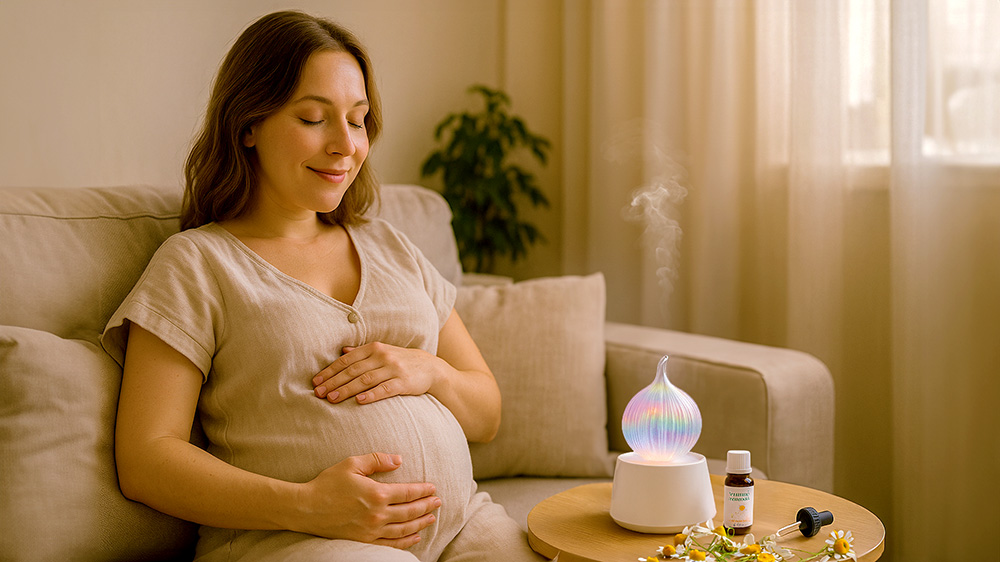
Inhalation Methods
Nebulizing diffusers (how a fine mist delivers undiluted essential oils) make inhalation pure and simple. Add 10–15 drops and breathe in the soft aroma for 30–60 minutes.
Try using Pregnancy Essential Oils like Lavender or Chamomile for stress relief.
Blend Pregnancy Essential Oils for a personalized experience that works for you.
For quick relief on the go:
- Place 10 drops of Ginger and 10 drops of Sweet Orange on a cotton roll inside a small inhaler tube.
- Sniff gently whenever nausea or tension rises.
Utilizing Pregnancy Essential Oils thoughtfully results in a more serene atmosphere.
Breathe. Relax.
Essential Oils to Avoid for Pregnancy Safety
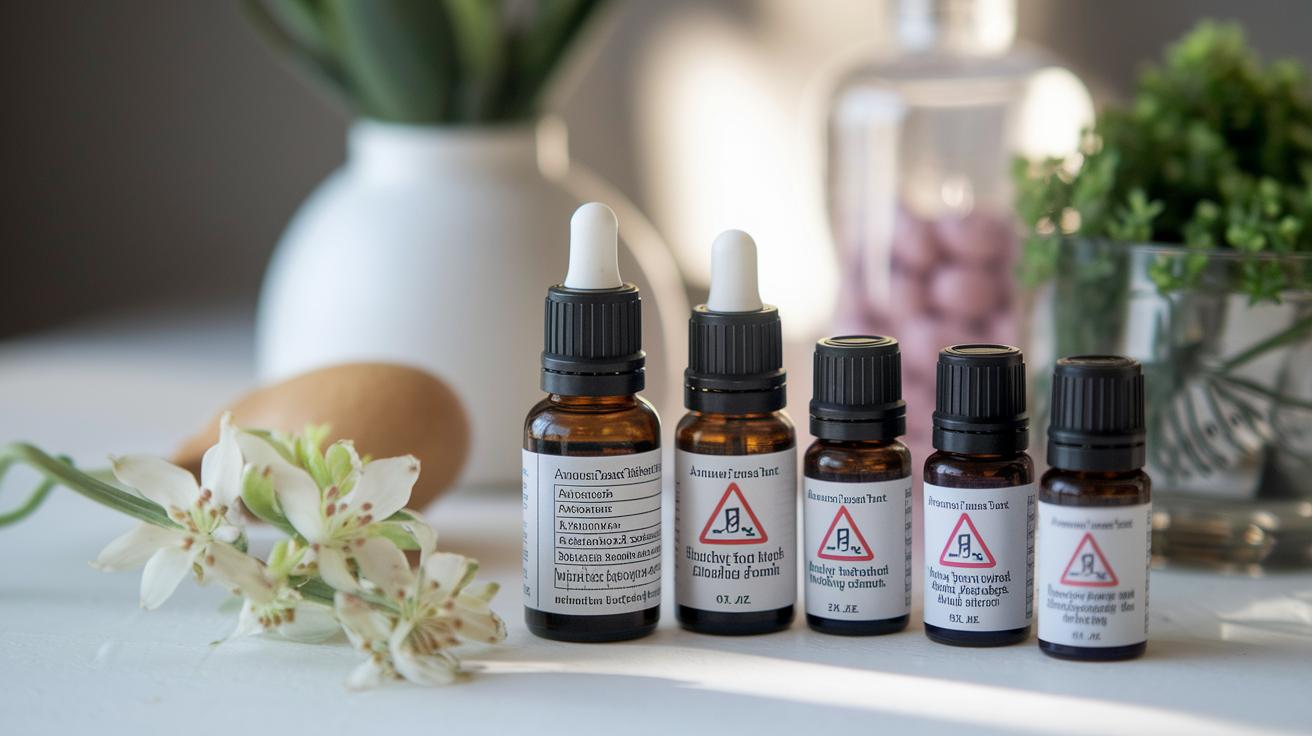
During pregnancy, some oils have molecules that mimic hormones or make your uterus contract. Phenols (ring-shaped compounds that can irritate your skin and be toxic) may even spark contractions if your body soaks them up. It’s comforting to skip oils with these strong chemicals so you can relax and feel secure on your pregnancy journey.
These oils can act on hormone receptors or tighten uterine muscles:
- Aniseed
- Basil CT estragol
- Bay
- Camphor
- Cassia
- Cinnamon
- Clary Sage
- Clove
- Cumin
- Hyssop
- Mugwort
- Oregano
- Parsley Seed & Leaf
- Pennyroyal
- Sage
- Sweet Birch
- Tansy
- Tarragon
- Thuja
- Thyme CT thymol
- Wintergreen
- Wormwood
Each of these oils carries either estrogen-like compounds or phenols. They may encourage uterine tightness, so keep them out of your blends throughout pregnancy.
Oils with sharp aromas like Eucalyptus, Peppermint, Rosemary, Lemongrass, or Ylang Ylang can overwhelm a nose that’s extra sensitive in early pregnancy. Hyperosmia (heightened smell sensitivity) often peaks in the first trimester and can trigger headaches or nausea. Skip these strong scents in your nebulizing diffuser (how a fine mist delivers undiluted essential oils) or massage blend before week 13.
Expressed citrus oils can make skin extra sensitive to sunlight. Bitter Orange, Grapefruit, Lime, or Lemon Verbena carry furocoumarins (plant molecules that react with UV light). After applying any peel oil, avoid sun exposure for at least 24 hours or choose a different oil. That way your aroma ritual stays gentle and your skin stays safe.
Professional Consultation for Essential Oil Safety in Pregnancy
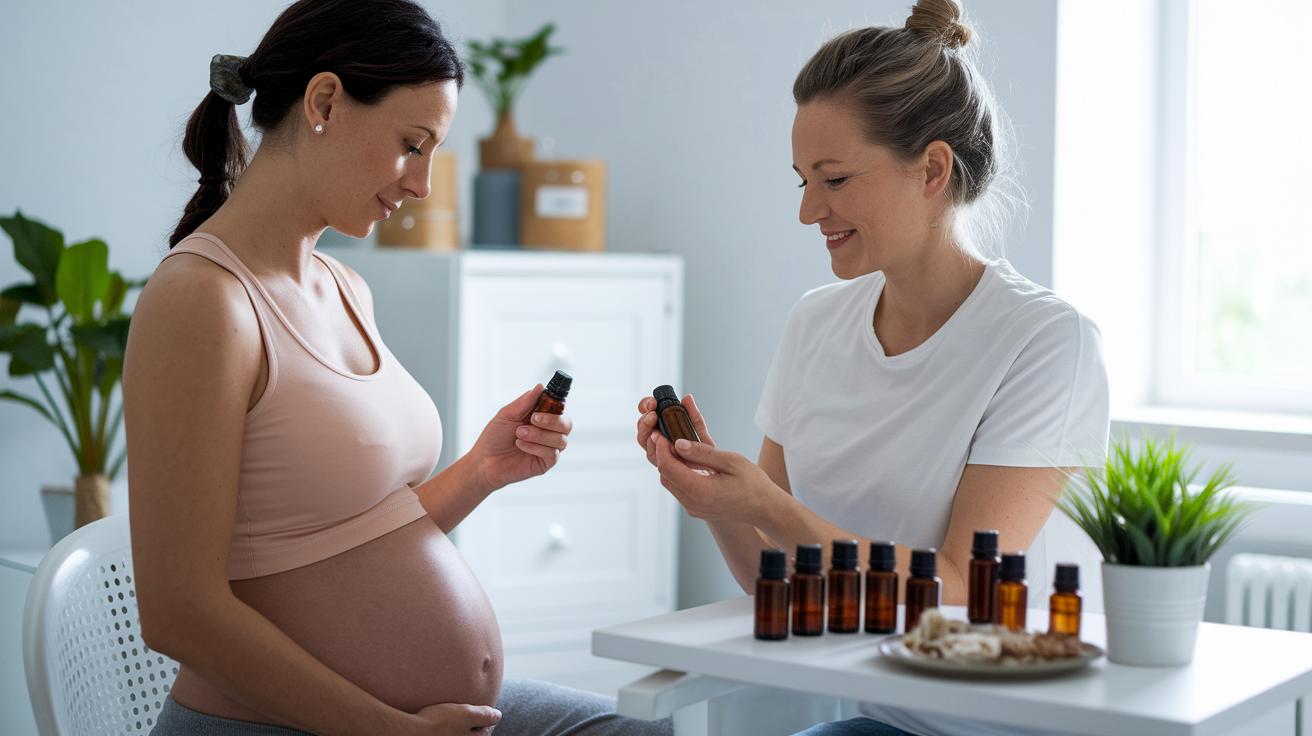
Have you wondered if a gentle mist of lavender could soothe you during pregnancy? We don’t have many human studies yet, so most guidance comes from animal tests and chemical-constituent analysis (breaking down each oil’s ingredients). Um, that might sound limited. At Organic Aromas, we trust clinical aromatherapy protocols and detailed lab reports to guide our safest choices.
Traceability matters. We use GC-MS (gas chromatography-mass spectrometry) tests to confirm each oil’s purity, ruling out fillers or harmful additives. Choosing certified organic oils with a trusted seal cuts adulteration risk. You get consistent, reliable quality every time.
Groups like the American College of Obstetricians and Gynecologists (ACOG) share guidelines on essential oil use during pregnancy, and the American Pregnancy Association does too. Have you checked in with your obstetrician or midwife? Their insights can help you blend calm, safe rituals into your prenatal routine.
Working with a certified aromatherapist adds another layer of safety. Explore Aromatherapy Certification programs to find pros trained in maternal aromatherapy. They’ll help you set up gentle inhalation or topical rituals while keeping you and your baby perfectly protected.
Incorporating Pregnancy Essential Oils into your routine can promote a calming environment.
As you explore the world of pregnancy essential oils, remember that small, mindful steps can make a big difference. Whether you’re easing nausea, reducing stress, or simply creating a peaceful moment before bed, the right essential oils can offer true relaxation and calm during pregnancy.
Many moms-to-be find that using safe essential oils for pregnancy stress relief becomes a calming ritual throughout their journey. Just be sure to choose high-quality pregnancy-safe oils and always follow recommended dilution guidelines.
With the right oils and a little intention, your daily routine can transform into a soothing escape – helping you enjoy a more peaceful and balanced pregnancy, naturally.
Final Words
By following simple dilution ratios, you’ve mixed just one drop in five milliliters of carrier oil and chosen inhalation as your first choice. Patch testing and steering clear of phototoxic oils keeps skin happy and safe.
Trimester guidance shows you when to pause and when gentle aromas can support comfort in later stages.
Focus on top picks like Lavender and Chamomile for calm and skip uterine-stimulant oils altogether.
Reach out for expert advice when in doubt. Here’s to a soothing, confident path to essential oil safety pregnancy.
FAQ
What essential oils should be avoided during pregnancy?
Oils with uterine-stimulating or estrogenic effects-Clary Sage, Cinnamon, Oregano, Pennyroyal, Basil CT estragol-plus strong scents like Eucalyptus, Peppermint, Rosemary, and expressed citrus (Lime, Grapefruit) should be avoided.
Why avoid peppermint oil during pregnancy?
Peppermint’s menthol can trigger uterine contractions, worsen heartburn or nausea, and irritate sensitive skin. High inhalation levels may also cause headaches or breathing discomfort in pregnant individuals.
Is it safe to diffuse peppermint oil while pregnant?
Diffusing peppermint may still risk uterine stimulation or headaches. If used, limit to 10–15 drops for 30 minutes max, keep good airflow, and check with your healthcare provider.
How safe is essential oil use in the first trimester?
The first trimester carries the highest fetal risk from placental transfer. Many clinicians recommend avoiding all essential oils during the first 12 weeks to protect developing organs.
What essential oil precautions apply in the third trimester?
In the third trimester, stick to 1% dilutions and low-risk oils like Lavender or Chamomile. Avoid uterine-stimulants such as Clary Sage and Cinnamon to reduce early contraction risks.
Is it safe to inhale eucalyptus oil while pregnant?
Eucalyptus may irritate nasal passages or worsen heightened smell sensitivity. Use just 5–8 drops in a diffuser for 10–15 minutes and get approval from your healthcare provider.
Are essential oils safe to diffuse around babies?
Diffusing around babies requires extra caution. Choose mild oils like Lavender or Chamomile, use no more than 5 drops, run for 10–15 minutes, and ensure good room ventilation.
What does the NHS recommend for essential oil use during pregnancy?
The NHS advises professional aromatherapy guidance, strict 1% topical dilutions, and avoiding strong oils-like Rosemary, Peppermint, and Clary Sage-until you consult a qualified provider.



